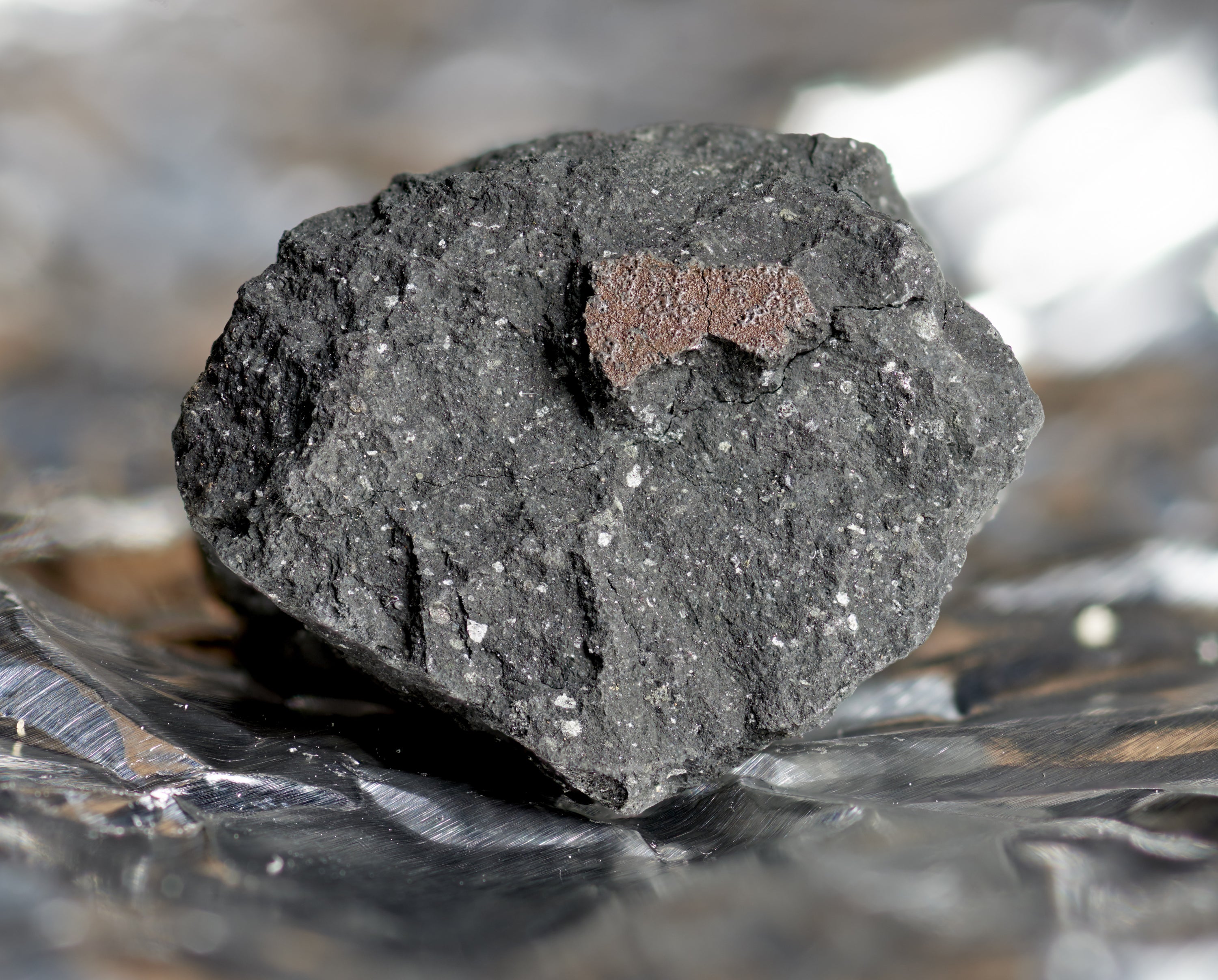Extra-terrestrial water found for first time in meteorite that fell in UK
The Winchcombe meteorite could also hold clues about where the water in the Earth’s vast oceans came from.

Extra-terrestrial water has been found for the first time in a meteorite that has fallen in the UK.
The Winchcombe meteorite, which crashed into a driveway in the Gloucestershire town last February, is also thought to hold clues about where the water in the Earth’s vast oceans came from.
Ashley King, a researcher in the planetary materials group at the Natural History Museum, said 12% of the sample was made up of water, and, as the least contaminated specimen to be collected, it offers a lot of insights.
It's a really good piece of evidence that asteroids and bodies like Winchcombe made a very important contribution to the Earth’s oceans
He told the British Science Festival: “The composition of that water is very, very similar to the composition of water in the Earth’s oceans.
“It’s a really good piece of evidence that asteroids and bodies like Winchcombe made a very important contribution to the Earth’s oceans.”
Dr King also confirmed that Winchcombe was the first time a meteorite containing extra-terrestrial water – albeit locked up in minerals – had fallen in the UK.
He added that, because of how quickly the 0.5kg (1lb) meteorite was retrieved – within about 12 hours – it was not contaminated by water and materials on Earth.
He said: “We always try and match the composition of the water meteorites and other extra-terrestrial materials to the composition of the water on the Earth.
“For most meteorites the challenge we have is that they are just contaminated, whereas with Winchcombe we really know that it really hasn’t been contaminated, so it’s good evidence.”
Dr King went on: “One of the big questions we have in planetary sciences is where did the water on Earth come from? And one of the obvious places is either through comets that have loads and loads of ice in them, or asteroids.
“There’s always a debate – were comets the main source, were asteroids the main source?”
Explaining that data from missions to comets suggests they are not a good match for the water on Earth, he added: “The composition of the water in Winchcombe is a much better match, so that would imply that asteroids – carbonaceous asteroids – were probably the main source of water to the inner solar system, to the Earth.”
Dr King continued: “We’ve had a hint that some asteroids match back nicely to the Earth.
“But now we have a meteorite which is really fresh that we know hasn’t been modified, and it’s confirming that same story.”
Speaking at De Montfort University, which is hosting the festival, Dr King said analysis has revealed that the meteorite came from an asteroid somewhere near Jupiter.
It formed some 4.6 billion years ago, with its journey to Earth taking about 300,000 years.
There are approximately 65,000 known meteorites on Earth.
This is the first known carbonaceous chondrite to have been found in the UK, and the first meteorite recovered in the UK in 30 years.
Bookmark popover
Removed from bookmarks